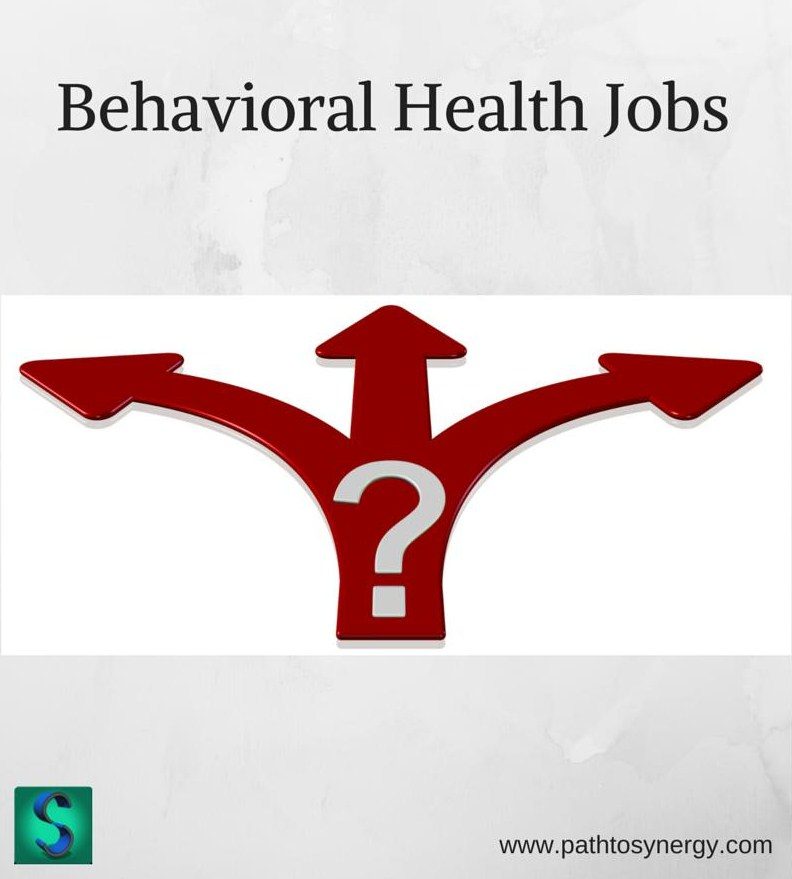Behavioral Health Jobs
There are many disciplines within behavioral health. To see more information about the different disciplines or about how to choose a therapist, see THIS BLOG POST. For this post though, I want to talk about all the different areas that are possible to work when searching for behavioral health jobs.
Over the last few years I have spoke a number of times to different graduate classes or schools regarding the varying types of jobs one can get with a graduate degree in a helping profession. When I was in graduate school I definitely would have been interested in hearing what kinds of options are out there, and it seems graduates students I come across have this same curiosity. Although there are many pros and cons working in the behavioral health arena (for a good summary click HERE), understanding the options that exist may be helpful in making a decision. Here is a short list and explanation of career options for those with a graduate degree in the behavioral health field (this list is not conclusive).
Behavioral Health Jobs
Community Mental Health
This area is typical for recent graduate school graduates who are looking for mental health jobs or social work jobs. In my experience the kind of mental health job you will have working in a community mental health center is always advantageous for improving clinical skills and building awareness of multiple populations. For more information about working in community mental health, click HERE.
Corrections
Working in corrections is often times an available opportunity in many communities because of the demand. For an example of duties that may occur for a mental health job in corrections, click HERE. The level of intensity in the environment of working within corrections may be high, due to the stress level. However there are many important, valuable clinical skills that could be gained through working in an environment like a correctional facility.
Crisis Interventionist
Typically this kind of work is done within a couple different contexts, like an EAP or a community mental health agency. Doing crisis work is specific and unique. This is also a great experience builder that will expose a new mental health graduate to potentially many situations and populations. The work is challenging and usually fast paced. The role may vary depending on the context but usually involves helping individuals or organizations debrief from a crisis and find resources and supports necessary. To learn more about being a crisis intervention worker click HERE.
Employee Assistance Program (EAP)
This career in mental health is also unique because it can involve a combination of clinical skills as well as business skills. EAPs are benefits offered to employees that are either a component of a medical plan or an additional employee benefit outside of the medical plan. The EAP allows for employees with this benefit to seek counseling services free of charge, within certain criteria. The EAP professional can have many responsibilities including clinical consultation/assessment/triage, organizational training, crisis intervention or account management. For more information about Employee Assistance Program work, click HERE.
Hospital
Working in a hospital within the field of mental health could mean a number of roles. There are social workers, case managers, therapists and even mental health nurses. To learn more about mental health nursing click HERE. Working in a hospital setting may become more of a popular setting for mental health workers as healthcare in general continues to shift to an integrated care model. To learn more about how integrated care may impact mental health jobs in the coming years, click HERE.
Private Practice/Group Practice
There are many advantages and rewards when working in private practice. To see my experience of starting a private practice, see THIS ARTICLE. The world of private practice can offer lots of independence and flexibility. However, some people find private practice to be too isolating, which is why group practices can be beneficial. Group practices offer the same flexibility and independence as a singular private practice but with some additional support. Having a group practice may offer more contact for staffing, triage and supervision. Settings in a group or private practice may also lead themselves to being in a more casual environment.
Substance Abuse Professional
Working within the substance abuse area of behavioral health is somewhat unique. Unlike other kinds of counseling work, working in substance abuse does not require a master’s degree. However, since it is an area that therapists often focus in, I wanted to include it. Substance abuse work can exist in a wide variety of settings including, but not limited to, treatment centers, community mental health clinics, detox centers and in private or group practices. HERE is an interesting chart looking at varying credentials one can pursue within the addictions field, with and without an advanced degree.
VA Counselor
This has become a more popular setting recently as there have been more opportunities opened up for not only social workers, psychologists and psychiatrists, but counselors as well. For more information about opportunities for counselors working the VA, click HERE. Behavioral health specialists working in the VA may be working with issues like PTSD, trauma and family dynamic issues. There may be additional benefits in working for the VA due to there being federal employee benefits packages.
I hope this short list gives some sense of all the varied opportunity that exists within the mental health job arena. Ultimately, like finding the right kind of therapist, the right kind of job within the mental field has to do with the best fit. My experience through working in a few different kinds of mental health jobs has helped me learn where my strengths and weaknesses are. I have also learned what kinds of clients I work best with, as well as which client’s may be suited for another therapist or service. Through this awareness I hope to ultimately have a better impact on those I work with, which I am thankful for.
Best,
Michael

